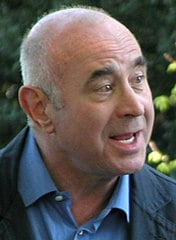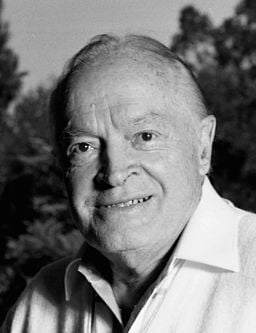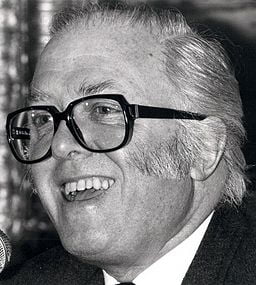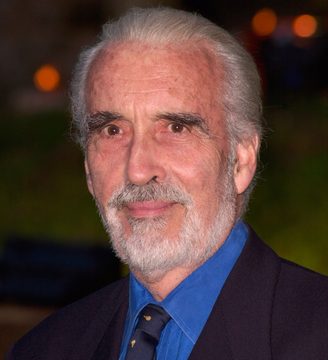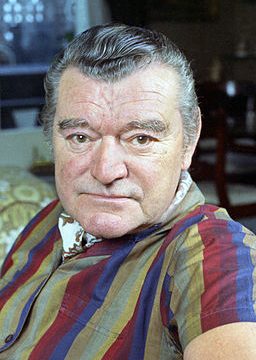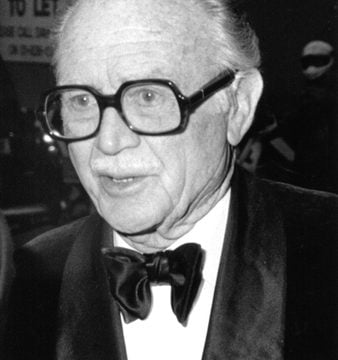Early Life and Career
The actor, author, and theatre director, Anthony Quayle was born in Ainsdale, Southport, Lancashire on 7 September 2013. He was the only child of Arthur and Esther Quayle, who christened him John Anthony. His lawyer father, a big fan of the theatre, often took his son to see stage performances in Southport. Quayle was initially educated privately at Abberley Hall School in Worcestershire but completed his education at Rugby School. After leaving Rugby, he trained at the Royal Academy of Dramatic Art (RADA) in London.
Quayle made his stage debut in 1931, appearing as the straight man in a comedy music hall act. A year later he joined the Old Vic, where he played minor roles for several years. He made his film debut, in 1935, with an uncredited appearance in Moscow Nights, starring Lawrence Oliver. In 1936, Quayle made his Broadway debut in The Country Wife. His next film role was a brief appearance as Eliza’s hairdresser in Pygmalion (1938).
Military Service
During World War II, Quayle served as a British Army officer. He was initially made an area commander of one of the Northumberland Auxiliary Units. He later joined the Special Operations Executive (SOE) where he served as a liaison officer to local resistance fighters in Albania. In 1945, he published a fictionalised account of his experience in the country in the book ‘Eight Hours from England’.
By 1943, Quayle was serving as a special aide to the Governor of Gibraltar. On 4 July, the plane carrying Polish leader General Władysław Sikorski crashed into the sea immediately after taking off from Gibraltar. All onboard were killed, except the pilot. Quayle once again told the story of his unique experience in his second novel ‘On Such a Night’ (1947).
Acting Career
In 1946, Quayle made his theatrical directing debut in a London production of ‘Crime and Punishment’. It paved the way for his appointment as the director of the Shakespeare Memorial Theatre in Stratford-upon-Avon in 1948. His eight-year tenure as director was instrumental in the formation of the Royal Shakespeare Company. He also resumed both his stage and film career during his time in Stratford.
In 1948, Quayle returned to the big screen in a production of Hamlet (1948), starring and directed by Lawrence Olivier. Later, he would often be often cast as an Army officer, where he was able to draw upon his own wartime experience. Some of the stand-out films of his career include; The Battle of the River Plate (1956), Ice Cold in Alex (1958), The Guns of Navarone (1961), H.M.S. Defiant (1962), and Lawrence of Arabia (1962). In 1970, he was nominated for an Oscar for Best Supporting Actor for his role as Cardinal Wolsey in Anne of the Thousand Days (1969).
As well as Quayle’s big screen appearances, he also had an extensive television career. His first TV outing came in 1954 when he appeared as Othello in an episode of Sunday Night Theatre. His television career consisted of numerous appearances in TV movies, miniseries, and other series that lasted until just before his death in 1988.
Quayle’s professional theatre career spanned from 1931 until just before his death in 1988. Reportedly, it was the theatre that remained his favourite medium throughout his career. In 1970, Quayle won the coveted Tony Award for his starring role in Anthony Shaffer’s Broadway production of ‘Sleuth’. In 1984, he founded the Compass Theatre Company, serving as its director until his death in October 1988.
Later Career
In 1972, he went a little off-piste career-wise when appeared as The King in Woody Allen’s offbeat comedy Everything You Always Wanted to Know About Sex* (*But Were Afraid to Ask). However, he was back in a familiar setting when he co-starred in the British WW2 classic The Eagle Has Landed (1976), starring Michael Caine and Donald Sutherland. He went on to make supporting role appearances in Holocaust 2000 (1977), Murder By Decree (1979), and the Italian film The Legend of the Holy Drinker (1988).
Quayle’s final film released during his lifetime was the British romantic crime comedy-drama Buster (1988). The film was based on the 1963 events of Britain’s Great Train Robbery. He made posthumous appearances in Magdalene (1989) and King of the Wind (1990). He also voiced the part of King Nod in the animated fantasy film The Thief and the Cobbler. The film, not released until 1993 due to technical difficulties, brought Quayle’s total filmography to thirty-eight credits.
Personal Life
Anthony Quayle married the English actress Hermione Hannen in 1935. However, the marriage was childless and ended in divorce in 1941. He married for the second time in 1947 to the American actress Dorothy Hyson. They went on to have two daughters and a son, i.e. Rosanna (b. 1948), Jenny (b. 1950), and Christopher (b. 1958).
In June 1952, Quayle was appointed a Commander of the Order of the British Empire (CBE) in Queen Elizabeth’s birthday Honour’s List. In 1985, he was awarded a knighthood in the Queen New Year Honours for services to the theatre.
Quayle famously kept his personal life very private. He is rumoured to have had a brief affair with the American-Hungarian actress Zsa Zsa Gabor in 1957. The self-effacing Quayle said of himself in a 1970s interview ”I wasn’t asked to be a handsome young man in films because I wasn’t a handsome young man”.
Death
Anthony Quayle was diagnosed with terminal liver cancer towards the end of his life. He chose not to be admitted to hospital. Thus, he died peacefully at his home in Chelsea, London on 20 October 1989, aged 76. His wife Dorothy was at his bedside when he passed on. The details of Quayle’s burial were never made public.
Quayle’s autobiography, ‘A Time to Speak’, was completed just before his death. The book was published in 1990.
